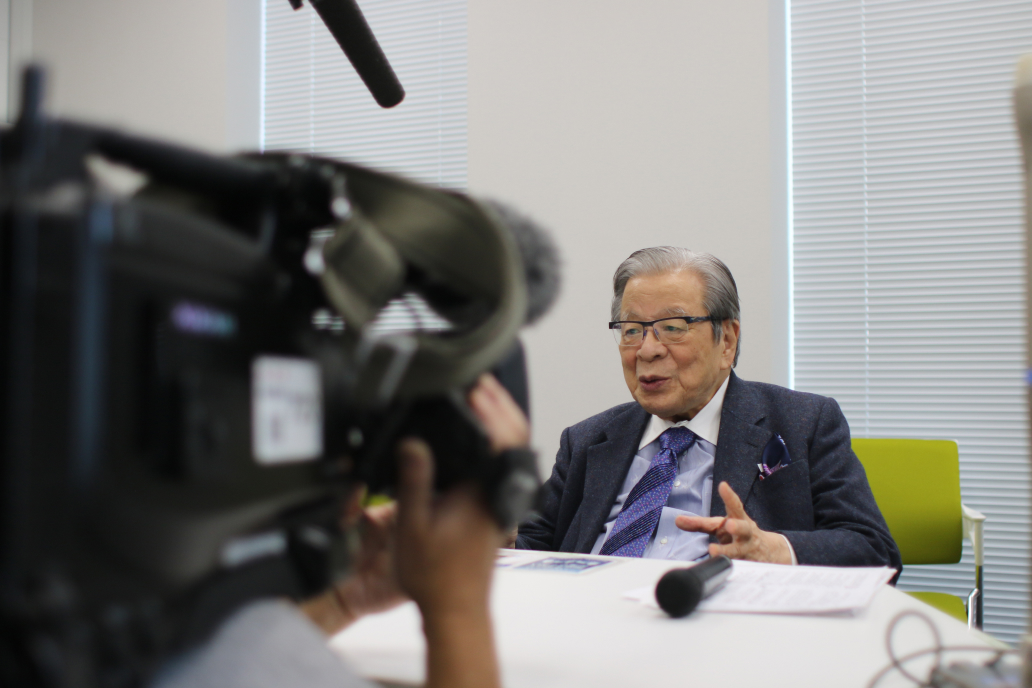Alfaxad’s Pursuit to Lead Change in Tanzania through Technology
Alfaxad is an Ashinga Africa Initiative (AAI) Scholar from Tanzania, majoring in Mechanical and Electrical Systems Engineering at the Kyoto University of Advanced Science. Alfaxad’s journey is a testament to overcoming challenges, chasing dreams, and unwavering commitment to innovation.
“My father’s passing at eight, and financial constraints created hurdles for my education. Despite excelling in interviews during middle school, financial limitations led to missed opportunities. The AAI transformed my narrative, opening doors to a brighter future,” Alfaxad shares. The AAI Scholar grew up watching NHK documentaries about Japan and its technologies. Leading to an early curiosity and fascination with the country’s technological advancement. “I consider the opportunity to be here a gift to learn from Japanese technologies.”
Inspired by science fiction films and books, Alfaxad’s passion for technology started early. “I started learning programming on my phone at the age of 12 since I did not have the means to buy a laptop. I continued learning but only committed to it fully when the Covid-19 pandemic started. The lockdown forced me to dedicate long hours every day to learning Python, C, and C++, and that is when I learned to develop mobile applications.”
In 2020, at the end of high school, Alfaxad participated in Idealab.ai hackathon organized by Tanzania AI Lab and AI Commons. Alfaxad led his team to create Tanzania’s first AI cancer diagnosis system. “We won the first prize, and that was the moment I realized that I can actually use my skills to build something useful, that realization has been my drive since then.”
Alfaxad’s primary motivation to join the AAI was to revolutionize life through technology. “I envisioned the program equipping me with top-tier expertise, empowering me to create impactful real-world solutions and initiatives, especially with the possibility to study in Japan.”
Alfaxad describes the experience of studying in Japan so far to be very rewarding. “I am exposed to cutting-edge technology daily, and my university provides me with the facilities and resources to continue growing and learning from my professors and peers.”
The transition to university life in Japan, facilitated by the AAI prepaeration year trainings, presented Alfaxad with challenges and triumphs. “The online study camp became transformative despite Tanzania’s hurdles with internet connectivity and electricity cuts. It was tough, but the growth in leadership and Japanese language skills was crucial for my life in Japan. I learned about the various academic topics related to our fields of interest, but we were also exposed to leadership and professional development from the beginning.” Alfaxad emphasizes.
Choosing the University of Advanced Science was uncertain, but Alfaxad’s fears were dispelled as the experience surpassed expectations. “The university’s resources and program structure proved ideal for international students pursuing engineering in Japan.”
To develop his skills further outside the classroom, Alfaxad committed to constantly finding problems around him and exploring how technology can solve them. That is when he started seeking out competitions and Hackathons to participate in. For example, Alfaxad embarked on a project to address the inefficiencies in electricity distribution, particularly in certain African countries plagued by frequent power cuts. The primary goal was to enhance the distribution process by strategically managing consumption patterns and identifying peak demand periods. By aggregating data on power plants and their capacities, the system aimed to minimize waste, improve efficiency, and make electricity accessible to a larger population. The overarching objective was to reduce operational costs, benefit consumers, and mitigate carbon emissions. ‘’Despite the audacious nature of the endeavor, I successfully created a prototype that garnered recognition. I entered it into the DB-SNUbiz Global Startup Challenge 2023, a prestigious competition organized by SNU University, Seoul National University, and DB Kim Jun Ki cultural foundation. Competing against top students from Asian countries, I emerged as Japan’s number one finalist, securing a substantial financial prize as a testament to the project’s viability and impact.’’ The accomplishment affirmed the project’s success and marked a meaningful step towards addressing a critical global issue.
Alfaxad also participated in the Google (Japan) Data Center Hardware Hackathon in Tokyo. “This exciting opportunity unfolded when I received an invitation to join the hackathon, which is tailored for students and early-career professionals in Japan.” The event’s focus revolved around technology, presenting participants with challenges encompassing programming and networking of computer systems. The goal was to simulate the intricacies of working within Google’s data centers, where managing vast amounts of data and handling billions of queries per second poses significant challenges. “Upon my attendance, I became an integral part of a team dedicated to solving these challenges. Our collaborative efforts propelled us to an impressive second-place finish in the hackathon. We also secured a special prize, recognizing our exceptional teamwork.”
Reflecting on his experience as an AAI Scholar so far, Alfaxad describes the program as incredible. “Beyond networking, connections with fellow AAI Scholars have blossomed into lasting friendships. The program’s structure, particularly the Professional Network Development components, was pivotal in helping Scholars achieve their goals. My university life has exceeded expectations, with ample support and resources fueling my passion for technology.”
Looking back on his experiences with both South Korean and Japanese competitions, Alfaxad shared: “They have profoundly shaped me professionally and personally. Beyond fostering the aspiration to dream big, these challenges instilled in me a resilient mindset. During the Japanese competition, my apprehension stemmed from language barriers, as it was primarily Japan-focused and conducted in Japanese. Despite my limited proficiency in the language, I confronted the challenge head-on, relying heavily on Google Translate. The resilience I developed was instrumental, leading to a second-place finish and even securing a special prize. Over the years, my technical skills have evolved significantly, transforming me into someone capable of building scalable systems and tackling real-world issues.”
Alfaxad’s newfound confidence fuels his ambition to address challenges in Africa, particularly in agriculture, healthcare, education, and infrastructure development. Inspired by the efficiency of Japan’s transportation infrastructure, notably the train system, he envisions bringing similar advancements to Tanzania. ‘’My goal is to contribute to enhancing the development of my country, Tanzania. Whether that is by increasing the efficiency and convenience of various infrastructures, developing AI-driven diagnosis systems, or innovative agricultural production using AI & Robotics, I truly believe in the power of fundamental advancement of science and technology to ultimately bring about transformative changes and I aim to be at the core of this transformational change in my country.’’

